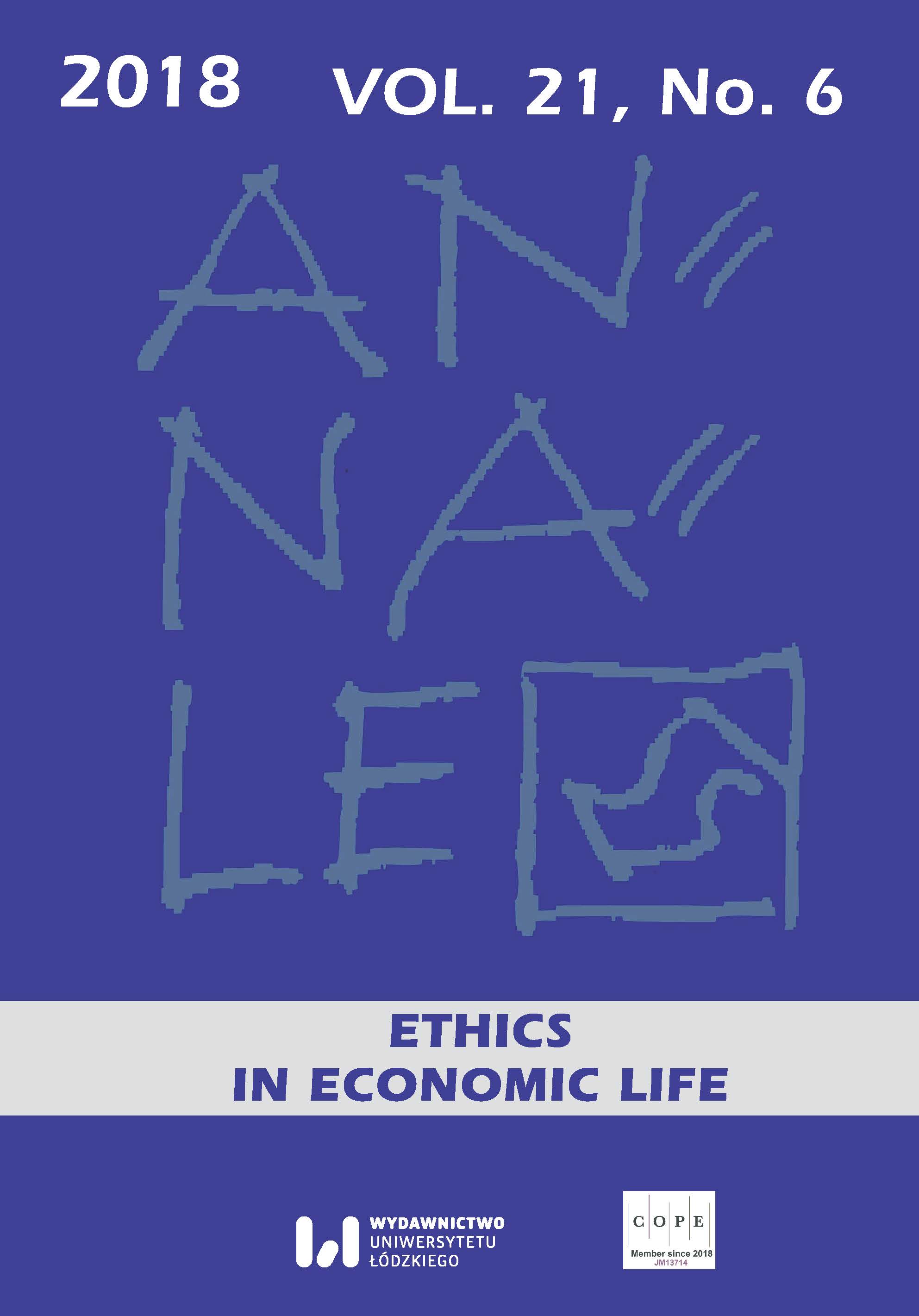Awareness of conflict of interest as an academic standard of ethics
DOI:
https://doi.org/10.18778/1899-2226.21.6.01Słowa kluczowe:
conflict of interest, funding effect, ethical standard, ethos of scienceAbstrakt
The paper shows that conflicts of interest in science undermine its ethos. Some examples of this phenomenon have been analysed from the point of view of its destructive consequences. The need to counter them has also been identified in our country and some legal regulations and self-regulation are gradually being introduced. However, they are not always respected in practice. In the last part of the paper, a model of management of risk of bias in scientific research has been outlined. The main thesis says that an awareness of conflict of interest embracing both knowledge of the general issues and relevant assessment of the personal risk of lack of objectivism should be an ethical minimum of every scientific worker.
Bibliografia
Barnes, D. E., & Bero, L. A. (1998). Why review articles on the health effects of passive smoking reach different conclusions. Journal of American Medical Association, 279(19), 1566–1570.
Google Scholar
Bekelman, J. E., Li, Y., & Gross, C. P. (2003). Scope and impact of financial conflicts of interest in biomedical research: A systematic review. Journal of American Medical Association, 289(4), 454–465.
Google Scholar
Best Practices in Review Procedures [Dobre praktyki w procedurach recenzyjnych w nauce]. http://www.nauka.gov.pl/publikacje-ministerstwo/archiwum,1.html
Google Scholar
Carrick-Hagenbarth, J., & Epstein, G. A. (2012). Dangerous interconnectedness: Economists’ conflicts of interest, ideology and financial crisis. Cambridge Journal of Economics, 36(1), 43–63.
Google Scholar
Grabski, M. W. (2009). Uczciwość i wiarygodność nauki. Praktyka. Nauka, 2, 37–59.
Google Scholar
Jaskulowski, K. (2013). The judge in his own case? Letter from prof. K. Jaskułowski about reviews of National Program for the Development of Humanities. http://obywatelenauki.pl/2013/11/list-prof-jaskulowskiego/
Google Scholar
Krimsky, S. (2006). Nauka skorumpowana? (B. Biały, Trans.). Warszawa: Państwowy Instytut Wydawniczy [original title: Science in the private interest: Has the lure of profits corrupted biomedical research?]
Google Scholar
Lewicka-Strzałecka, A. (2012). Konflikt interesów. In W. Gasparski (Ed.), Biznes, etyka, odpowiedzialność (pp. 249–288). Warszawa: Wydawnictwo Naukowe PWN.
Google Scholar
Lewicka-Strzałecka, A. (2017). Świadomość konfliktu interesów jako akademicki standard etyczny. Annales. Ethics in Economic Life, 20(1), 7–16.
Google Scholar
Merton, R. K. (1982). Teoria socjologiczna i struktura społeczna (J. Żurawski & E. Morawska, Trans.). Warszawa: Państwowe Wydawnictwo Naukowe.
Google Scholar
The Polish Academy of Science. (2012, December 13). The Ethics code of a researcher, Annex to Act No. 10 of the General Assembly of the Polish Academy of Science. https://instytucja.pan.pl/images/2013/Komisja_Etyki/Kodeks_etyki_pracownika_naukowego_.pdf
Google Scholar
vom Saal, F. S., Nagel, S. C., Timms, B. G., & Welshons, W. V. (2005). Implications for human health of the extensive Bisphenol. A Literature showing adverse effects at low doses: A response to attempts to mislead the public. Toxicology, 212(2–3), 244–252.
Google Scholar
Supreme Audit Office. (2011). Information on the results of the audit “Wykorzystanie środków publicznych na naukę”. KNO-4101-08-00/2011, No. 162/2012/P/11/070/KNO.https://www.nik.gov.pl/plik/id,4361,vp,6190.pdf
Google Scholar
Turner, C., & Spilich, G. J. (1997). Research into smoking or nicotine and human cognitive performance: Does the source of funding make a difference? Addiction, 92(11), 1423–1426.
Google Scholar
Wiens, C., & Cota, A. (2009). Lecturer conflicts of interest in medical school education: Raising the bar in BC. BC Medical Journal, 51(4), 162–163. http://www.bcmj.org/mds-be/lecturer-conflicts-interest-medical-school-edu cation-raising-bar-bc
Google Scholar
Wilson R. A. (1966). Feminine forever. New York: M. Evans & Co.
Google Scholar
Writing Group for the WHI Investigators (2002). Risks and benefits of estrogen plus progestin in healthy postmenopausal women: principal results from the Women’s Health Initiative randomized controlled trial. Journal of American Medical Association, 288(3), 321–333.
Google Scholar
Pobrania
Opublikowane
Jak cytować
Numer
Dział
Licencja
Prawa autorskie (c) 2018 Annales. Etyka w Życiu Gospodarczym

Utwór dostępny jest na licencji Creative Commons Uznanie autorstwa – Użycie niekomercyjne – Bez utworów zależnych 4.0 Międzynarodowe.









